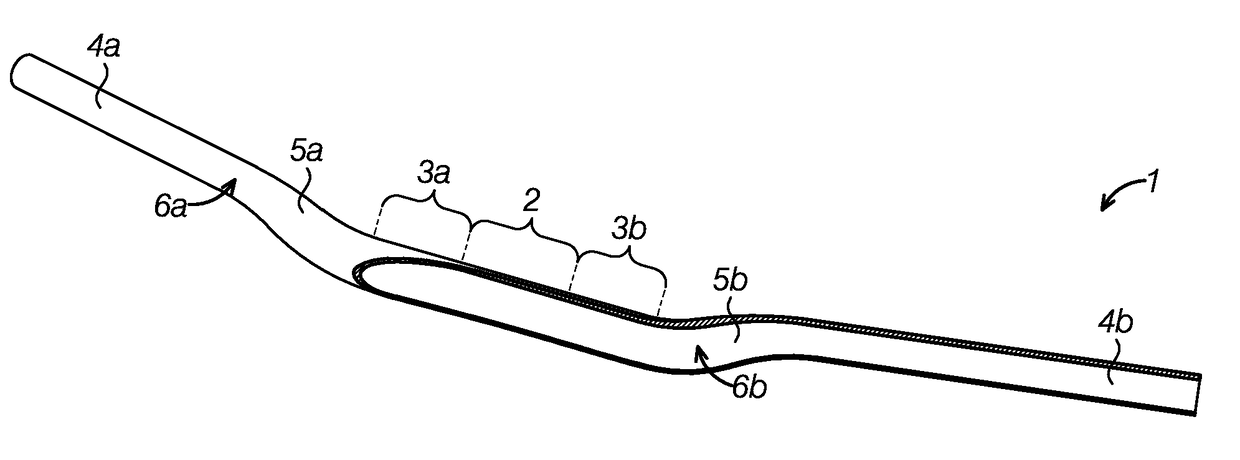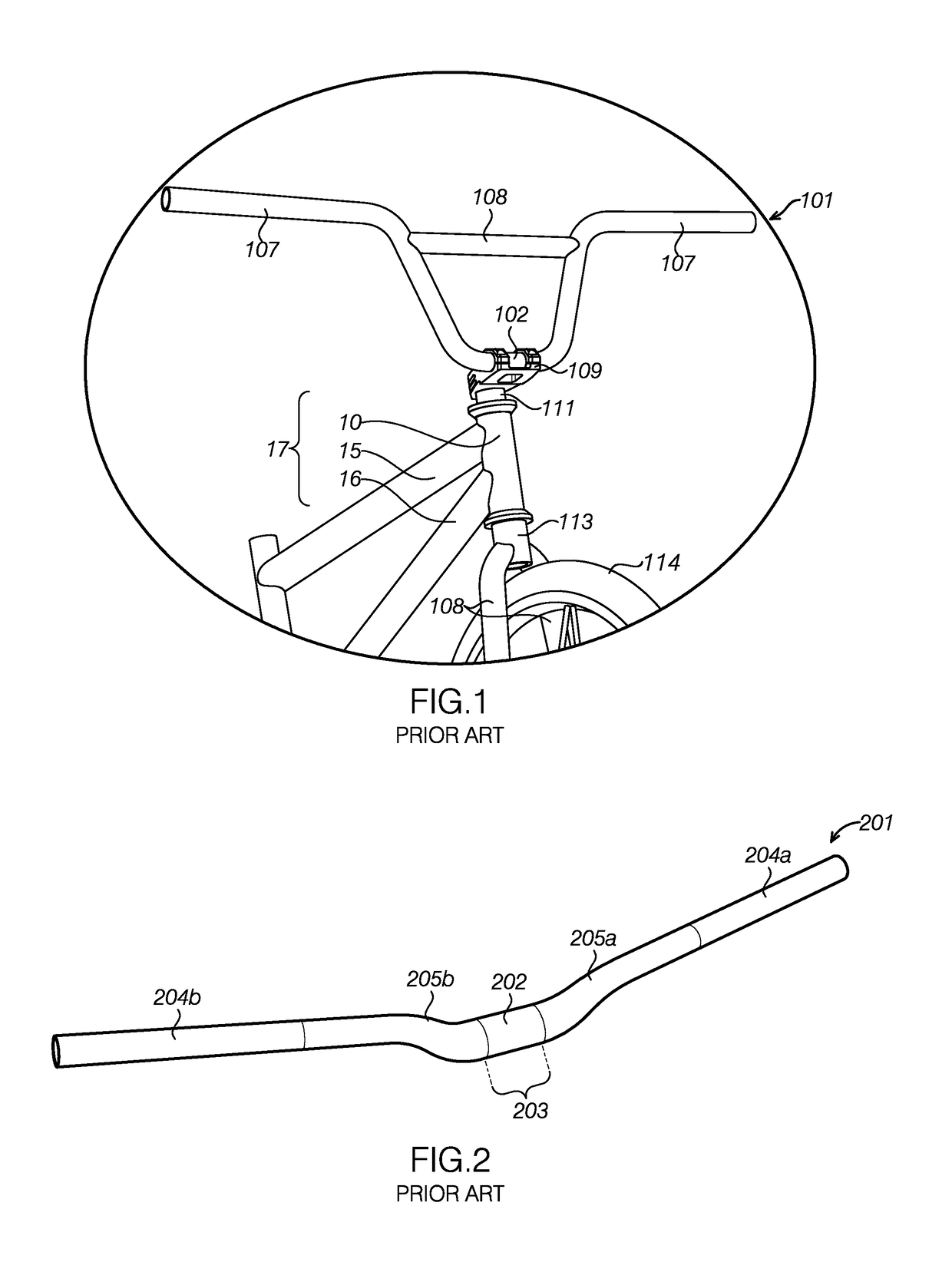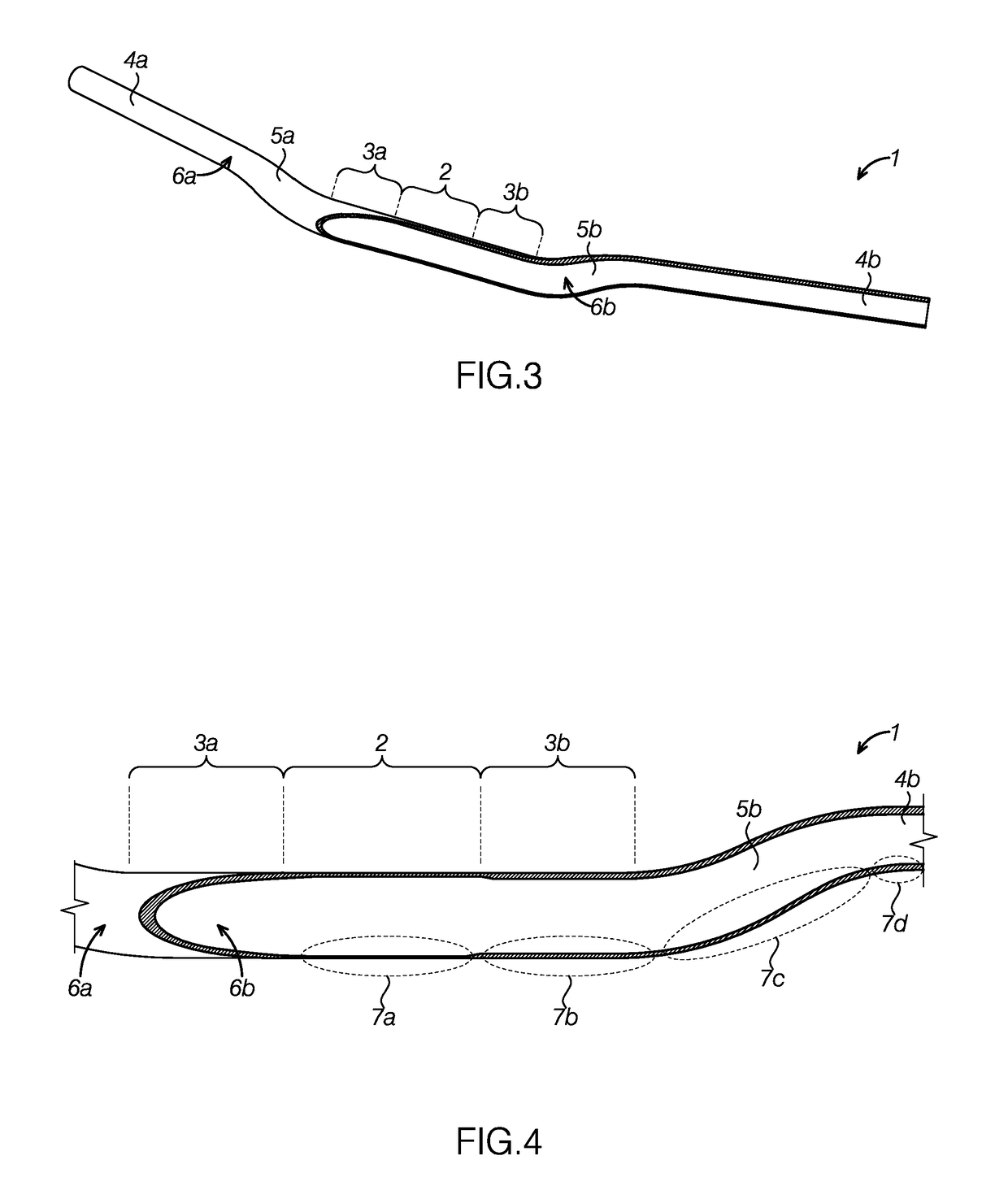Bicycle handlebar
a technology for bicycles and handlebars, applied in the direction of bicycle equipment, steering devices, transportation and packaging, etc., can solve the problems of waste of materials, increase weight, thick wall thickness of materials, etc., and achieve the effect of preserving strength and rigidity, and reducing weigh
- Summary
- Abstract
- Description
- Claims
- Application Information
AI Technical Summary
Benefits of technology
Problems solved by technology
Method used
Image
Examples
Embodiment Construction
[0037]Preferred embodiments according to the present invention will be described in detail below, referencing the drawings. Note that the scope of the present invention is not limited to the embodiments or drawings set forth below, but rather may be altered and modified in many ways.
[0038]FIG. 3 illustrates a first preferred embodiment of a handlebar apparatus, or simply handlebar, 1 configured to be attached to stems at two locations. As illustrated in FIG. 3, the handlebar 1 comprises a center portion 2, stem attaching portions 3a and 3b, grip portions 4a and 4b, and bent portions 5a and 5b, where the bent portions 5a and 5b are provided so as to elevate the grip portions 4a and 4b when attached to the stem. While a particular shape for the handlebar 1 is shown, including bent portions 5a and 5b, the present invention may include handlebars of various shapes, with or without bent portions 5a and 5b, or with bent portions 5a and 5b having various and different bends formed therein....
PUM
 Login to View More
Login to View More Abstract
Description
Claims
Application Information
 Login to View More
Login to View More - R&D
- Intellectual Property
- Life Sciences
- Materials
- Tech Scout
- Unparalleled Data Quality
- Higher Quality Content
- 60% Fewer Hallucinations
Browse by: Latest US Patents, China's latest patents, Technical Efficacy Thesaurus, Application Domain, Technology Topic, Popular Technical Reports.
© 2025 PatSnap. All rights reserved.Legal|Privacy policy|Modern Slavery Act Transparency Statement|Sitemap|About US| Contact US: help@patsnap.com



